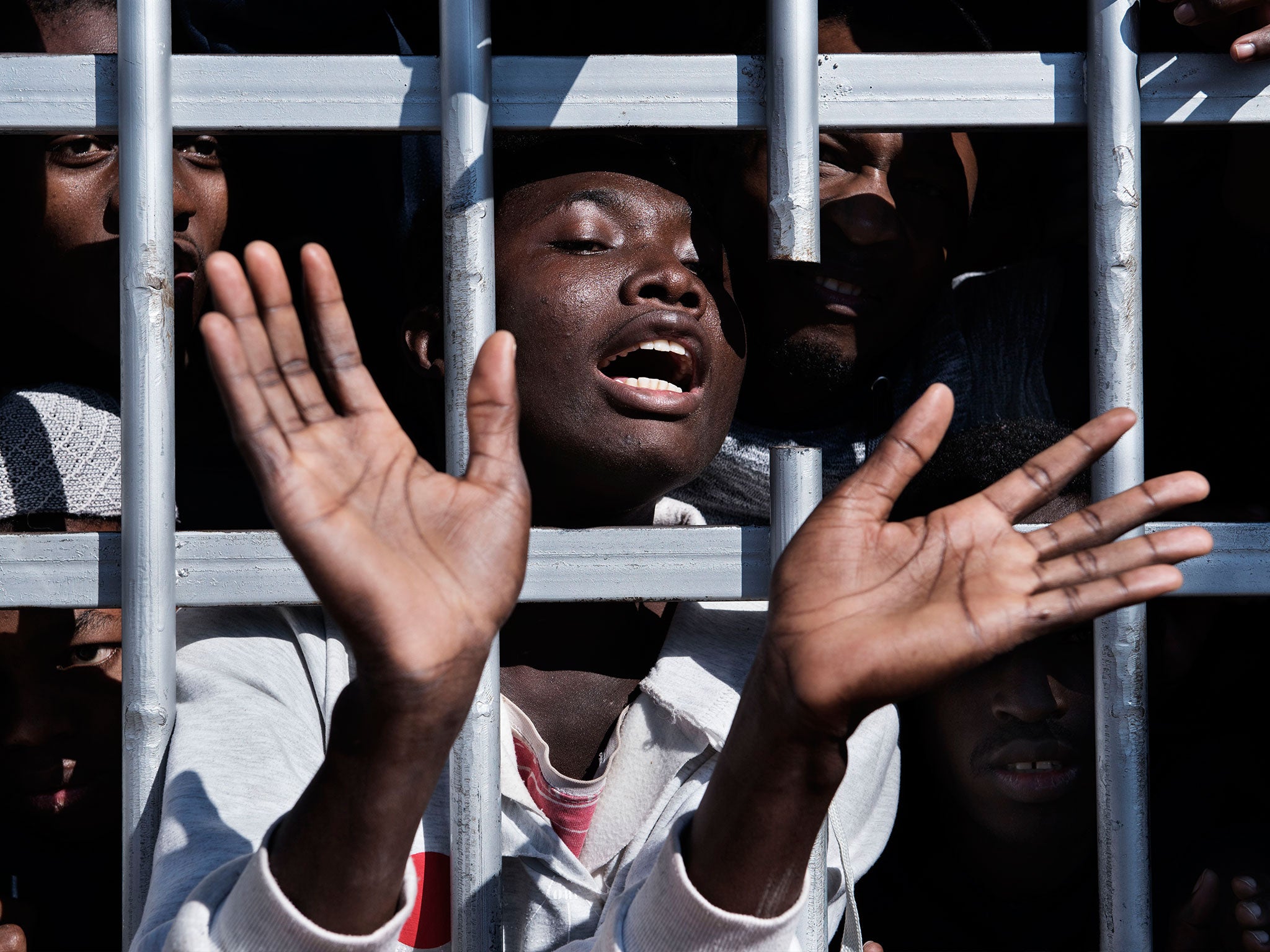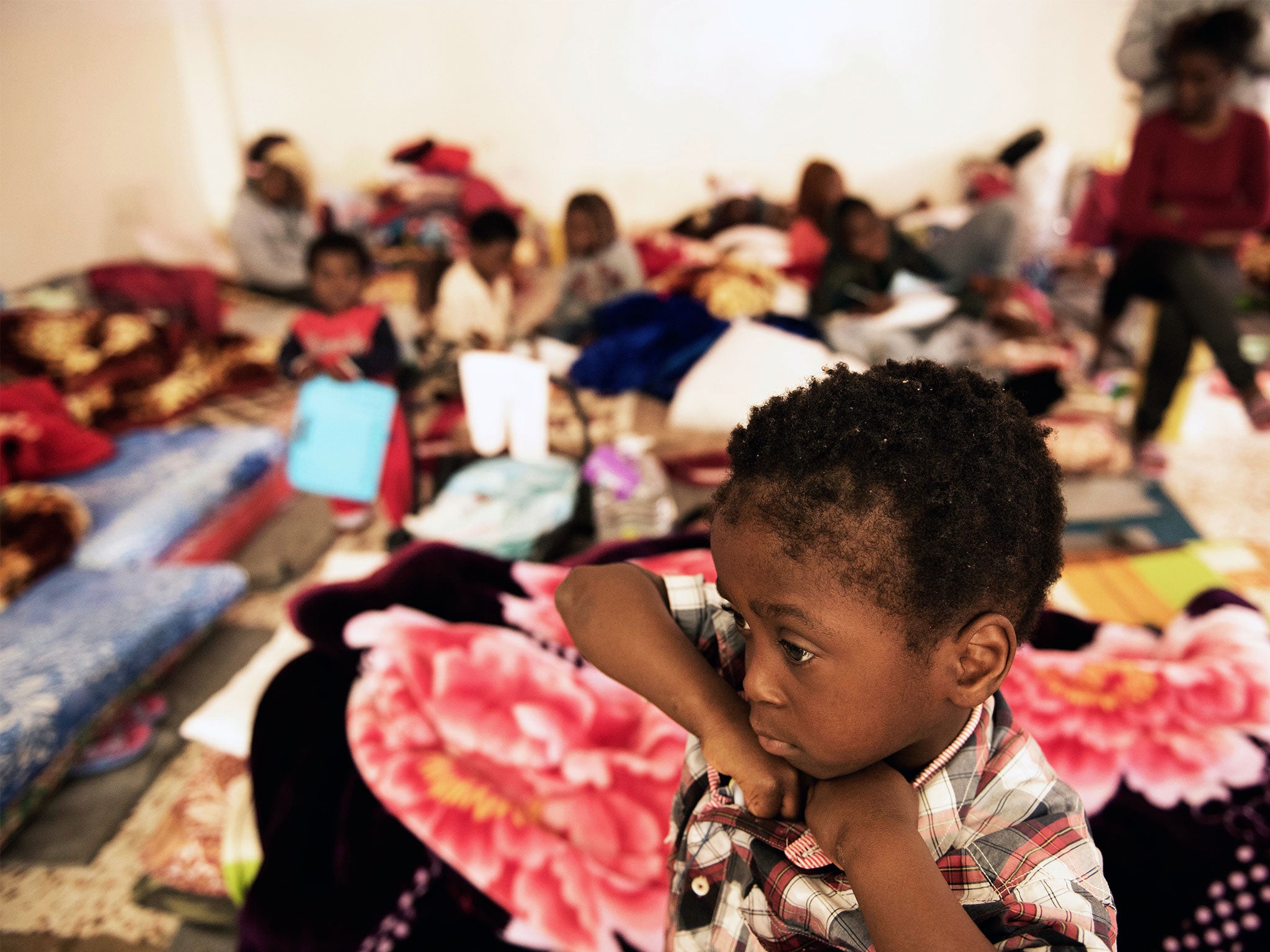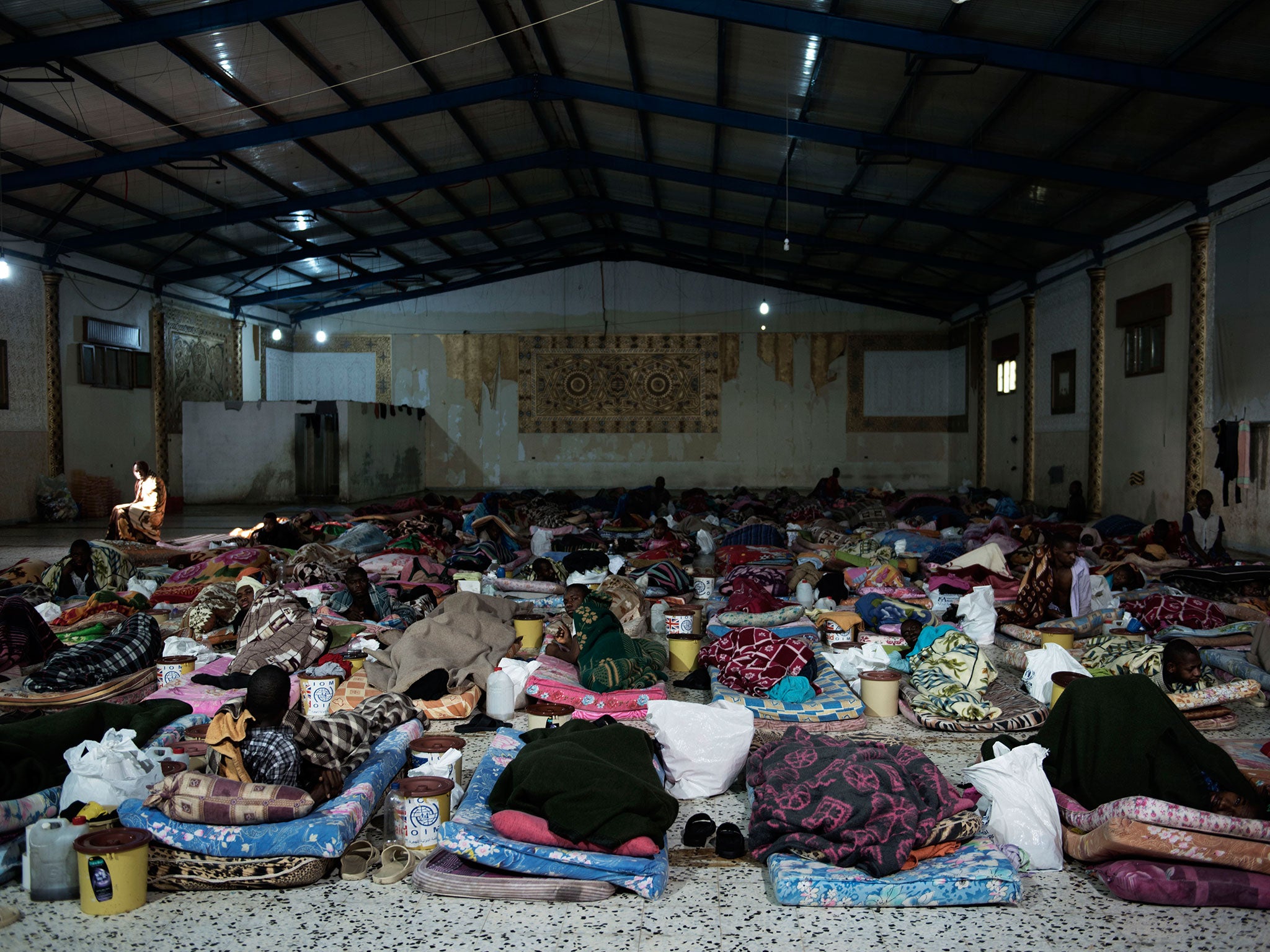Child refugees face death and sexual violence in Libyan jails as number trying to reach Europe doubles in a year
Unicef report comes day before a Commons votes on how to support unaccompanied child refugees in Greece and Italy

Your support helps us to tell the story
From reproductive rights to climate change to Big Tech, The Independent is on the ground when the story is developing. Whether it's investigating the financials of Elon Musk's pro-Trump PAC or producing our latest documentary, 'The A Word', which shines a light on the American women fighting for reproductive rights, we know how important it is to parse out the facts from the messaging.
At such a critical moment in US history, we need reporters on the ground. Your donation allows us to keep sending journalists to speak to both sides of the story.
The Independent is trusted by Americans across the entire political spectrum. And unlike many other quality news outlets, we choose not to lock Americans out of our reporting and analysis with paywalls. We believe quality journalism should be available to everyone, paid for by those who can afford it.
Your support makes all the difference.The number of refugee children trying to reach Europe by boat has doubled in the last year, with thousands now attempting the deadly Mediterranean crossing every month, Unicef has warned.
More than 25,000 youngsters – nine out ten of whom were unaccompanied – made the perilous journey in 2016.
On the deadliest sea route, between Libya and Italy, an estimated 4,579 people died, including more than 700 children.
The figures are published in the UN agency’s latest report on the refugee crisis, which details harrowing accounts of migrant children and women who have suffered sexual violence, exploitation, abuse and detention during their journey.
The report comes a day before a vote in the Commons on how to support unaccompanied child refugees in Greece and Italy.
Theresa May’s Government has faced public anger and a backlash from some MPs after it emerged the Dubs scheme would soon be dropped.
The scheme, named after its architect, Labour peer Lord Alf Dubs, sought to provide refuge for unaccompanied children arriving in Britain.
But it will be capped once another 150 unaccompanied children are brought to Britain, on top of the 200 already in the UK.
“The Central Mediterranean from North Africa to Europe is among the world’s deadliest and most dangerous migrant routes for children and women,” Unicef regional director and special coordinator for the refugee and response crises in Europe, Afshan Khan, said.
“The route is mostly controlled by smugglers, traffickers and other people seeking to prey upon desperate children and women who are simply seeking refuge or a better life.
“We need safe and legal pathways and safeguards to protect migrating children that keep them safe and keep predators at bay.”
The Unicef survey paints a disturbing picture of the emotional and physical abuse young people face as they risk their lives to reach Europe.

Some of the 122 interviews conducted by the UN agency were with children as young as five.
Three quarters of the under-18s interviewed said they had experienced violence, harassment or aggression at the hands of adults.
Many of the abuses appeared to have taken place in detention centres dotted across Libya, the agency said.
The Libyan Government’s Department for Combatting Illegal Migration runs 24 detention centres, with each site holding as many as 7,000 detainees.
Armed groups are thought to run an unknown number of unofficial detention centres housing many more refugees.
Nearly half the women interviewed also reported suffering sexual violence or abuse during their journey.
The Unicef report also details how migrants are treated differently depending on their country of origin.
Sub-Saharan Africans tend to be treated much worse than migrants from Egypt or countries in the Middle East, Unicef found.
Will, an unaccompanied eight-year-old boy from Nigeria, who is now in detention in Libya, was one of those who gave a testimony.

He said: “We wanted to go to Italy. We were on a boat. After a while the boat began to take in water and soon after it sank.
"There was a boy who survived, and I held onto him for many hours. He saved me. But my father and mother both died. I did not see them again.”
January was a particularly deadly month for refugees crossing the Mediterranean.
Around one in 20 migrants died in the first month of the year, compared to one in 24 in December, and an average of one in 41 for the whole of 2016.
Unicef UK’s deputy executive director, Lily Caprani, urged Theresa May to offer safe routes to Britain for the most vulnerable.
She said: “This is one of the most dangerous migration routes in the world and yet 25,800 unaccompanied and separated children arrived in Italy by sea last year.
“Because the safe and legal routes available are so limited, traffickers and smugglers control the route, preying on vulnerable children seeking a better life in Europe and UK.
Even when children reach Europe, the traffickers and smugglers continue to control and coerce these children.
“The UK Government deserves credit for supporting vulnerable children in conflict affected states, but it must also protect these vulnerable children in Europe by providing safe and legal pathways to the UK for those who have a legal claim.”
Join our commenting forum
Join thought-provoking conversations, follow other Independent readers and see their replies
Comments